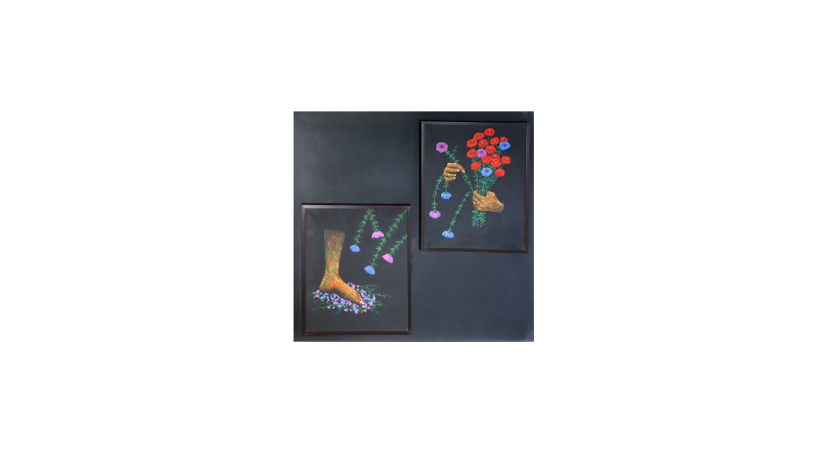The artist’s concerns are not confined merely to those that meet the eye, but also those that remain hidden — that take place in the home, in the interior of the mind…reports Asian Lite News
Through nuanced paintings that use allegory, magic realism, mythology, and fantasy — the show ‘Within, Without’ is Ranjan Kaul’s expression of what he views as a discordant, chaotic and disrupted world.
The works that will be exhibited here at the Visual Art Gallery, India Habitat Centre, from March 27 to 31 are reflections on the complexities of contemporary society inured to realities into complacency by altogether new technology-based media narratives.
Among the focus areas of his work include the condition of women and children, self-interest, and the plight of the oppressed and marginalized.
The artist’s concerns are not confined merely to those that meet the eye, but also those that remain hidden — that take place in the home, in the interior of the mind.
Rather than creating a mood of despondency and despair, the works give a glimpse of hope and harmony, of a world with love and romance, music and dance. Rather than depict his serious thematic as realistic reportage, the artist often enlivens his work with a quirky, satirical skylarking, oftentimes using hybrid, chimeric creatures.
After March 31, the exhibition will continue at Urban Fringe – the underground studio at Okhla Phase 1 from April 12 to 22.
A dominant theme in the show is the predicament of women, particularly those belonging to the oppressed groups, given their lack of choice and autonomy and absence of agency. While the paintings depict their onerous social circumstances, they do at the same time offer a glimmer of hope, portraying as they do their strength, resilience, and resolve.
The artist’s ‘Disrupted’ series expresses the trauma that women as well as men go through, faced with the strains of living in a harsh and at times antagonist society that is often unaccepting of the choices they make.
Some of the paintings weave narratives around the wider socio-cultural landscape — these include a series of five paintings loosely inspired by Shelley’s poem, ‘Masque of Anarchy’, wherein the poetic imagery is juxtaposed with imagined scenes from current times.
Another two satirical works depict the growing obsession with the self, of makeovers, body-shaping and selfies, while another is a tongue-in-cheek image of a cocktail party.
“The primary focus of this show is to give imaginative articulation to what I believe are the disruptive and disquieting conditions we are living in. I use a range of devices and visual languages – from mythology and literary references to flora symbolism and human-animal hybrid characters,” says Kaul.
He further adds, “I have explored a variety of styles, treatments, and choices of the medium in consonance with my shifting thematic — from heavy, textured layers of acrylic using the palette knife, watercolour, mixed media, to working with thick brushstrokes using oil. I find sticking to a particular style or theme rather constricting, and thus remain free from conservative constraints that can inhibit an artist from innovating, discovering, learning.”
ALSO READ-Bhangra Nation: A Musical Celebration of Identity and Unity Takes Birmingham by Storm


